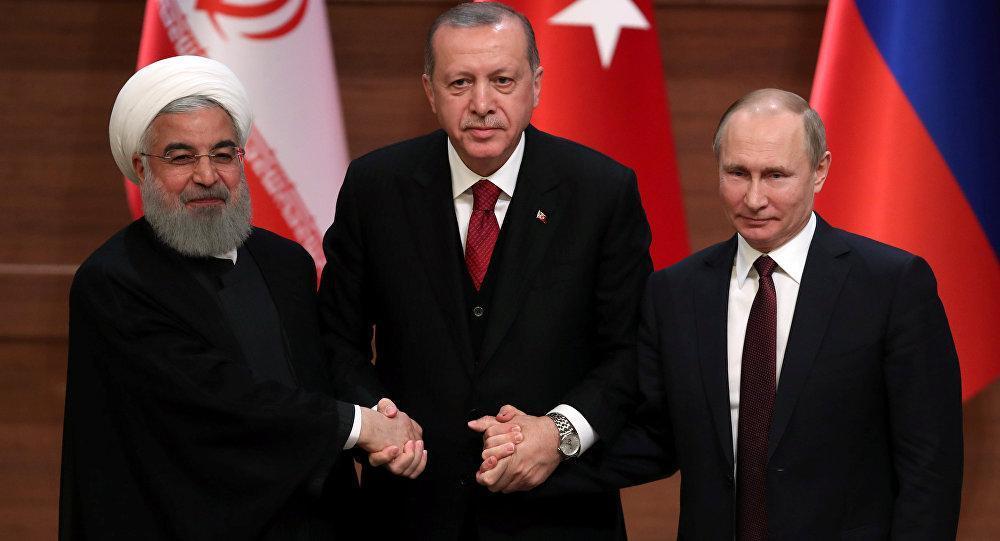
File photo
Two important international summits will take place tomorrow, with the first being about Syria and will bring Turkey, Russia and Iran together in Sochi for the fourth time under the Astana Process.
The first is about Syria and will bring Turkey, Russia and Iran together in Sochi for the fourth time under the Astana Process. The second one is about Iran and co-organized by the United States and Poland with a goal of lining up Washington’s allies in the Middle East against Iran.
It would be a hasty and exaggerated assessment to describe these two settings particularly as against each other, although a piece of fairness would be accumulated in comments that highlight growing fractions between prominent global and regional actors over Mideast troubles.
Although both summits are about the Middle East, the former eyes ending violence and promoting a political solution to the Syrian question while the latter brings dozens of countries together in an objective of reducing Iranian influence in the Middle East.
A decision to hold such an anti-Iran summit has been made by U.S. Secretary of State Mike Pompeo as a result of his week-long tour to prominent Arab nations, including Saudi Arabia and Egypt early last month.
After reactions from some countries were raised on the motive of this summit, the U.S. and Poland have changed the theme of the meeting to “Promoting a Future of Peace and Security in the Middle East.”
According to reports, some 60 countries have confirmed their attendance, including several from the Middle East. Aside from Israel, the Mideast participants include Saudi Arabia, Bahrain, Yemen, Jordan, Kuwait, Morocco, Oman, the United Arab Emirates, Egypt and Tunisia.
Israel’s Prime Minister Benjamin Netanyahu is among high-level participants of the summit, hoping to observe a good reception from the representatives of the Arab nations. His statements on Feb. 11 explicitly outlines that Israel regards this meeting as a historic development for its efforts to drive Iran into a corner.
Turkey’s position with regard to this summit is clear. It sees this meeting as against Iran and therefore has decided not to take part in it.
“Turkey’s political participation in such a meeting that targets one country is out of question,” a senior Foreign Ministry official told the Hürriyet Daily News on Feb. 12. “We are therefore not dispatching any representative to this meeting. Our embassy in Warsaw will follow it.”
This decision is based on Turkey’s principles, the official explained, stressing that its non-participation should be interpreted as the Turkish government’s distance to the U.S.-led initiative. “In a statement in Cairo during a trip to Egypt, U.S. Secretary of State Pompeo had unearthed the real motive of this initiative. In line with its principles, Turkey has always been against such moves,” said the official.
Just a note, like Turkey, Russia is also not attending the meeting and it’s believed that Qatar will also be absent in the Warsaw meeting. The European Union countries which have been critical to Washington’s anti-Iran policies will also be displaying low-level participation.
The Middle East is passing through a major transformation, with rival countries changing positions and building new alliances, in a development that follows the election of Donald Trump as the president of the U.S.
He was able to gather Gulf countries – except Qatar – together with Egypt and Jordan against the expansion of Iranian influence in the region. Turkey is closely following all these moves and has made clear that it will not line up against its neighboring country although Ankara and Tehran have a score of disagreements over regional matters.
The upcoming period obliges Turkey to pursue a much more balanced position and refrain from subscribing to any of these alliances, given the fragile conditions in the region that cause vital security concerns.